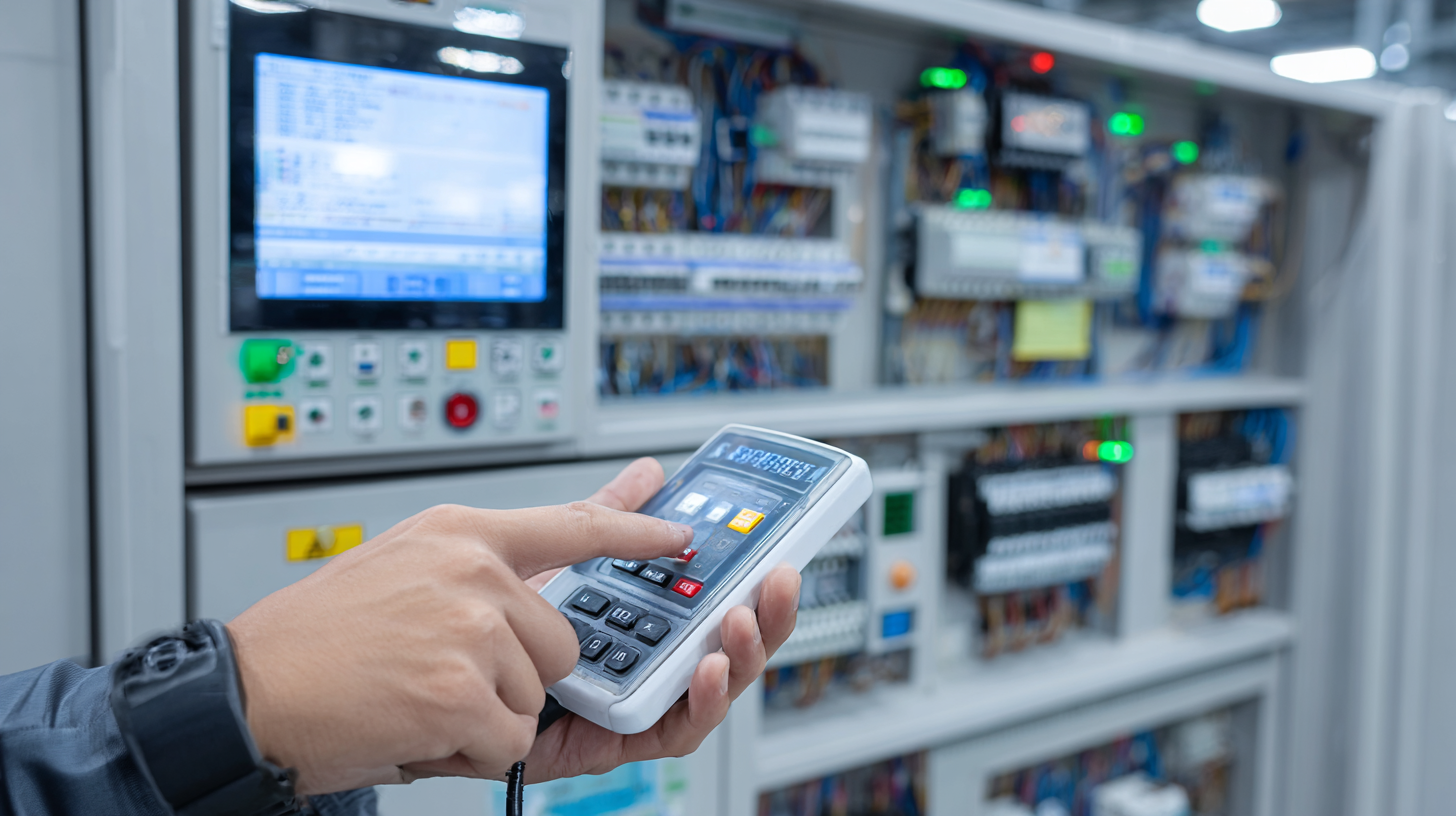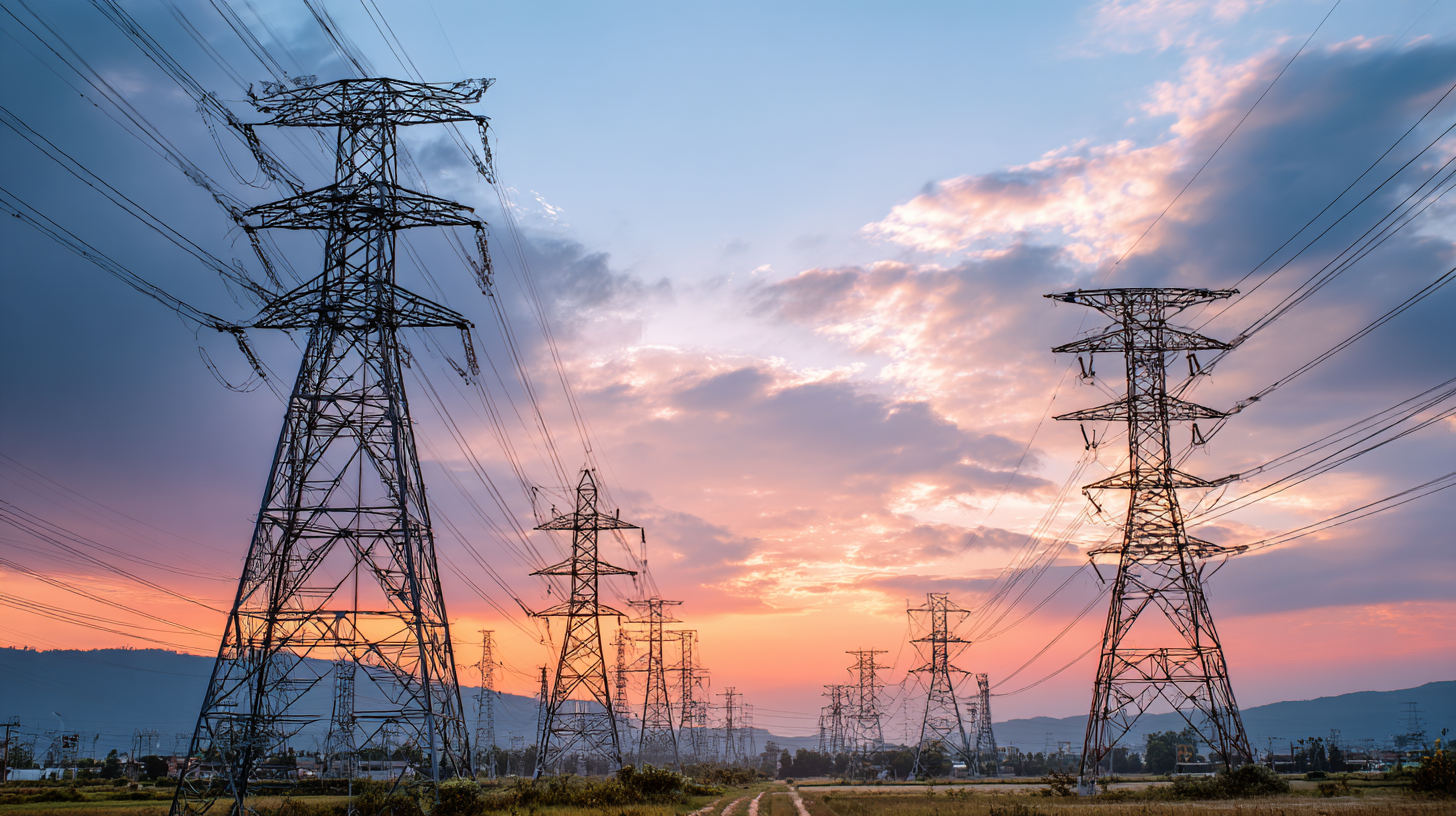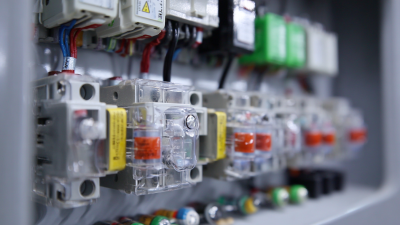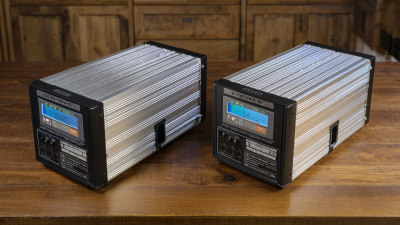Exploring the Future of AC Power Supply: Trends, Innovations, and Market Growth Projections
As we delve into the future of AC power supply, it is essential to recognize the remarkable trends and innovations shaping this pivotal sector. According to a recent report from Market Research Future, the global AC power supply market is expected to exceed $8 billion by 2025, reflecting a compound annual growth rate (CAGR) of approximately 5.2% during the forecast period. This growth is driven by the increasing demand for reliable and efficient power supply solutions across various industries, including telecommunications, healthcare, and manufacturing.

Moreover, advancements in technology, such as the integration of smart grid systems and energy-efficient components, are significantly transforming the landscape of AC power supply. The International Energy Agency (IEA) highlights that the push for sustainable energy solutions is leading to innovative designs and enhanced functionality in AC power supplies. As businesses strive to reduce their carbon footprints and comply with stringent environmental regulations, the market is witnessing a shift towards more eco-friendly products and practices.
In conclusion, exploring the future of AC power supply reveals a dynamic interplay of market growth, technological advancements, and a commitment to sustainability. Stakeholders must stay informed of these evolving trends and innovations to effectively navigate the burgeoning landscape and capitalize on emerging opportunities.
Future Trends in AC Power Supply: A Comprehensive Overview
The future of AC power supply is being shaped by several emerging trends that promise to enhance efficiency, reliability, and sustainability. One significant trend is the increasing integration of renewable energy sources, such as solar and wind, into existing AC grids. This shift not only aids in reducing carbon footprints but also necessitates innovations in grid management and energy storage solutions to ensure a balanced supply despite the intermittent nature of these sources.

Moreover, advancements in smart grid technology are revolutionizing how AC power is distributed and consumed. Smart meters and IoT devices are enabling real-time monitoring and optimization of power usage, allowing both utilities and consumers to manage energy more effectively. In addition, the rise of electric vehicles (EVs) is driving the need for upgraded power infrastructure to support seamless charging processes. These innovations are not only improving the resilience of AC power systems but are also fostering a more sustainable energy future.
Innovative Technologies Reshaping the AC Power Landscape
The landscape of AC power supply is undergoing a significant transformation, driven by innovative technologies that promise to reshape the industry. One of the most impactful advancements is the proliferation of smart grid technologies. According to a report by the International Energy Agency (IEA), smart grids are projected to enhance the efficiency of electricity distribution significantly, potentially reducing losses by up to 15% while accommodating a 20% increase in demand over the next decade. By integrating digital communication technologies, these grids offer improved load management and energy distribution, paving the way for a more resilient grid system.
Another innovation is the rise of decentralized energy systems, which are gaining traction due to their ability to provide reliable power supply while minimizing transmission losses. A report from MarketsandMarkets estimates that the global microgrid market could grow from $23.4 billion in 2023 to $41.0 billion by 2028, showcasing an annual growth rate of 12.3%. This shift towards localized power generation not only boosts energy security but also promotes the utilization of renewable energy sources, aligning with global sustainability goals and governmental regulations. The commitment to smart, flexible, and efficient AC power systems illustrates how innovation is not just a trend but a necessary evolution in the sector.
Exploring the Future of AC Power Supply: Trends, Innovations, and Market Growth Projections
| Trend/Innovation | Description | Market Growth (%) | Projected Market Size (Billion USD) |
|---|---|---|---|
| Smart Grids | Integration of ICT with electric power systems to enhance efficiency. | 25% | 20 |
| Renewable Energy Integration | Use of wind, solar, and other renewable sources in AC power supply. | 30% | 30 |
| Energy Storage Solutions | Advancements in battery technology to support grid stability. | 20% | 15 |
| Power Quality Improvement Technologies | Devices and systems aimed at enhancing power quality. | 15% | 10 |
| Decentralized Energy Systems | Localize energy production to reduce dependencies on centralized grids. | 18% | 12 |
Market Growth Projections for AC Power Supply in a Changing Economy
In the ever-evolving landscape of the global economy, the AC power supply market is poised for significant growth. Emerging trends in renewable energy, coupled with advancements in smart grid technology, are driving the demand for efficient power supply solutions. As industries adopt more sustainable practices, the shift towards electrification is expected to create new opportunities for AC power suppliers. Projections indicate a robust increase in market share over the next decade, fueled by innovations aimed at enhancing system reliability and reducing costs.
Tip: Businesses looking to capitalize on this market growth should invest in research and development to explore cutting-edge technologies that improve power efficiency. Collaborating with tech firms specializing in AI and IoT can also pave the way for smarter energy management solutions.
As consumer preferences continue to shift towards sustainable energy options, companies that prioritize eco-friendly AC power supply systems will likely gain a competitive edge. These innovations not only align with regulatory trends but also meet the growing consumer demand for greener alternatives. Understanding market dynamics and staying ahead of technological advancements will be crucial for stakeholders aiming to thrive in this changing economy.
Tip: Keeping abreast of industry regulations and shifts in consumer preferences can help businesses adapt their strategies. Attending industry conferences and networking with experts can provide valuable insights into future market trends.
Key Challenges and Solutions in Advancing AC Power Supply Systems
The advancement of AC power supply systems faces several key challenges that must be addressed to ensure a sustainable and efficient future. One significant issue is the aging infrastructure, as highlighted by the U.S. Department of Energy, which estimates that over 70% of electrical transmission lines and transformers are over 25 years old. This aging equipment not only affects reliability but also increases the risk of outages. Upgrading these systems requires substantial investment, estimated at around $4.5 trillion by 2030 according to the American Society of Civil Engineers, emphasizing the need for innovative solutions to modernize the grid.
Another critical challenge is the integration of renewable energy sources. As reported by the International Energy Agency (IEA), the share of renewables in global electricity generation grew from 25% in 2015 to 29% in 2020, a trend expected to continue. However, the intermittent nature of renewables poses difficulties for AC power supply stability and reliability. To tackle this, advancements in energy storage technologies, such as lithium-ion batteries and emerging solid-state solutions, are crucial. Investments in smart grid technologies could also facilitate better demand response and energy management, ensuring that AC power supply systems can accommodate the increasing complexity of modern energy sources while maintaining efficiency and reliability.

The Role of Renewable Energy in the Future of AC Power Supply
The future of AC power supply is increasingly intertwined with the adoption of renewable energy sources. As the global energy landscape transforms, systems that stabilize electric power are becoming essential. For instance, innovative technologies are being developed to simulate the stabilizing effects offered by traditional power generation. According to a recent report, the renewable energy sector is projected to grow by over 20% annually, driven by advancements in energy storage and grid management systems.
In parallel, the integration of green hydrogen plays a pivotal role in this transition. Collaborations among leading firms have yielded agreements focused on green hydrogen technologies, which can complement renewable energy systems by providing a reliable energy storage solution. The Smart Grid Hybrid Electrolysis-and-Combustion System (SGHE-CS) represents a significant advancement, enabling seamless integration of hydrogen production and storage with next-generation combustion technologies. With regions like Sub-Saharan Africa still facing electricity access challenges, leveraging renewable energy and hydrogen solutions could bridge the gap, ensuring a sustainable and electrified future.
Future Trends in AC Power Supply
This chart illustrates the projected contribution of renewable energy to the AC power supply from 2023 to 2040, indicating a significant trend towards increased reliance on renewable resources in the future energy landscape.
Related Posts
-

Addressing Common Issues with DC Supply Systems: A Comprehensive Guide
-

Unlocking Efficiency: How Switching Power Supplies Transform Modern Electronics
-

5 Proven Reasons High Voltage DC DC Converters Are Essential for Modern Power Systems
-

Unlocking Top Performance: The Essential Guide to Choosing the Right PC Power Supply for Gamers in 2023
-

Decoding Power Inverters: Understanding Efficiency Ratings and Their Impact on Your Energy Bills
-

How to Choose the Right PSU for Your Computer to Maximize Performance and Efficiency
At Premium PSU, we are specialists in designing and manufacturing power conversion systems for the industrial market. Our product range includes high reliability power supplies from 50W to 72kW.
PREMIUM PSU
C/ Dolors Aleu, 19-21, 2nd Floor
08908 – Hospitalet de Llobregat
Barcelona-SPAIN
t.+34 93 223 26 85


